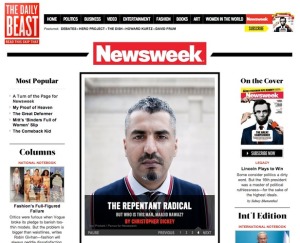Last month, we looked at a history of the 4th Estate in images.We ended the month by featuring newsworthy photos and their stories shared on social media. This month, we take a further look at the evolution and the future of the 4th Estate as we explore how it has been affected by the emergence of what is now being termed the 5th Estate of online resources.
Online and social media give you instant news gratification. These resources also give you the ability to watch a story as it develops, provide your own commentary, share your reactions and engage in a dialogue with the online community.
The ability to report news has given rise to the term “citizen journalist” – every day people sharing newsworthy stories, photos and videos via their smart phone, tablet or computer.
As we shared last month, citizen journalism also allows people directly affected by injustice to report their first hand accounts. We have seen this play out recently in the Arab Spring and Occupy Wall Street movements.
While citizen journalists are helping to deliver the news as it is happening by being in the right place at the right time (or wrong place at the wrong time depending on the news being broken), they have encroached on the territory previously occupied by professional journalists. Since 2008, 15,000 newspaper journalists have been laid off across the county. Veteran journalist and CBS correspondent, Morley Safer stated “I would trust citizen journalism as much as I would trust citizen surgery.”
Beyond this impact is the critical question – how do journalistic standards hold up in the digital world comprised of citizens? One answer may be to have citizen journalists become certified or apply for credentials. NASA developed a social media credential program in order to uphold professional standards while gaining exposure for the work of the agency. To date NASA has invited 300 of their followers with their social media credentials to cover events.
As more news publications close their doors or open new ones solely online, we wonder if a healthy mix of traditional and new media will be what saves the 4th Estate from the 5th Estate?
Questions like these will affect how we can continue to be smart consumers of information. We look for answers and predictions for the future this month by talking to professionals in social media and journalism. We will learn how adapting to social media can help journalists cast a wider net to obtain information and sources, create new opportunities to engage audiences and can even land new jobs. We will also learn about current trends and what’s on the horizon for social media.
We hope you will stay social with us by sharing your comments and questions and by following us on Facebook and Twitter.
What’s your point of view? Do you think social media is helping or hurting the 4th Estate?
Liz Faris, Account Manager
Collaborative Services




Recent Comments